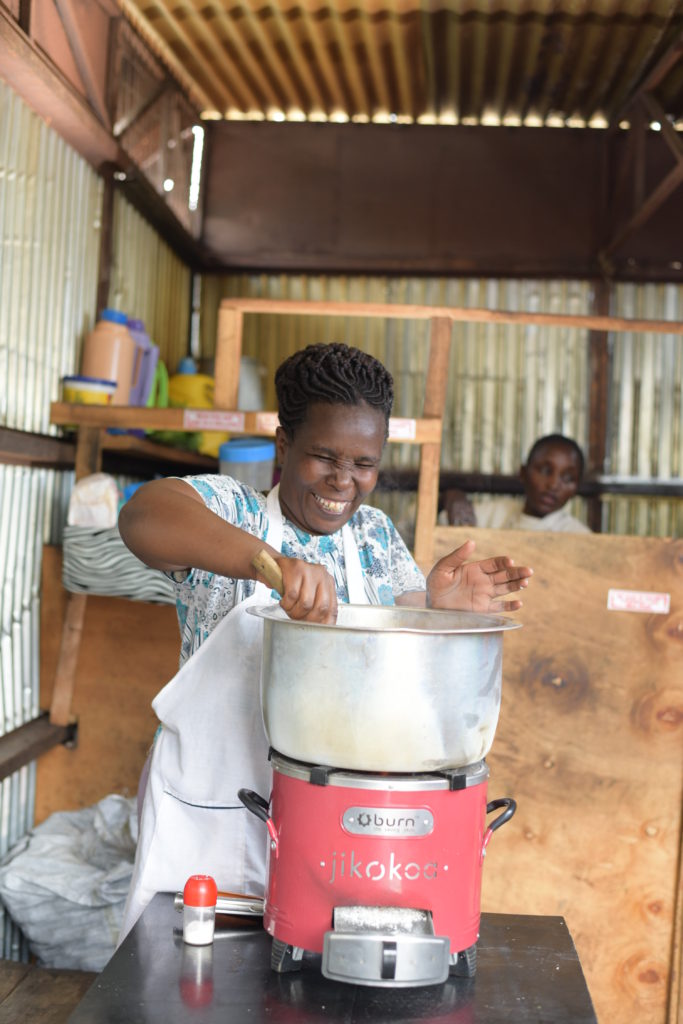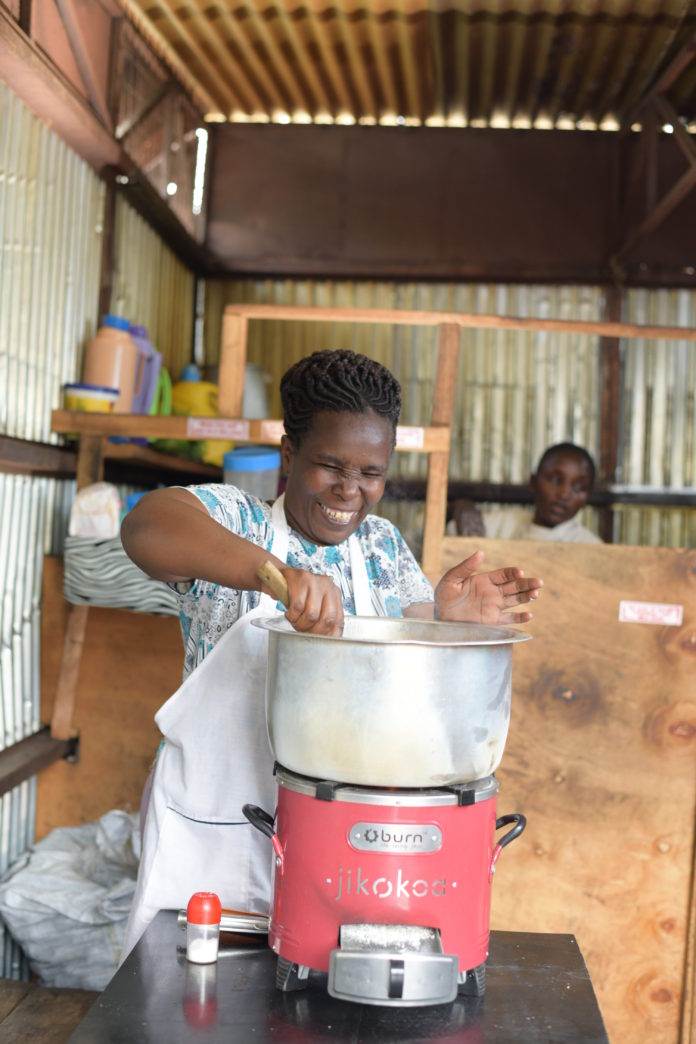By Wairimu Nyambura
Allan Orimba cannot help but gush over the transformation that has taken place in his home since he bought Kuniokoa – a clean energy cooking stove from BURN Manufacturing.
“I love that my wife and my house now look clean and neat, she no longer smells of smoke, unlike in the past when we cooked on the three stone fire. This stove has brought us joy, helped us save so much money, and now we even cook inside the house and the cooking place stays clean”, says Allan.
On average a Kenyan household spends about $2 a day on fuel, making cooking an expensive affair for many. For Allan, revolutionary companies like BURN are a game changer.
Through their innovative cooking technologies such as the JikokoaTM and KuniokoaTM cookstoves, families like his have reduced their fuel costs by more than half, saving about $200 yearly.
Still, some three billion people around the world, mostly in low – and – middle income countries cook using biomass in inefficient open fires or with traditional stoves in poorly ventilated rooms. Cooking this way is not only costly but a cause of more than four million deaths annually; more than those from HIV, TB, and Malaria combined. Women and girls are the most affected by indoor air pollution as they are traditionally tasked with household cooking.

Despite the grim effects of cooking with inefficient open fires, experts estimate that over the next 30 years biomass will continue to supply 70-80 percent of all household energy needs in sub-Saharan Africa. As such, companies like BURN play a vital role in providing affordable and clean energy to households in Kenya and sub-Saharan Africa through their clean energy cooking stoves.
BURN stoves, which are designed, tested and manufactured at the company’s solar-powered cookstove manufacturing plant in Ruiru, Kenya, are designed to dramatically reduce harmful carbon dioxide emissions from burning biomass fuels such as charcoal and firewood, reduce fuel consumption by 56% and fuel expenditure by $150-300 annually.
Since inception in 2013, the company has produced and sold more than 650,000 stoves, helped families reduce fuel costs by $177million, wood consumption by 3millions tons, and Co2 emissions by 5million tons.
Despite the many benefits associated with owning and cooking on a clean burning stove, financial constraints still hinder the adoption of these stoves in sub-Saharan Africa as most consumers cannot afford the upfront costs to purchase an improved clean-cooking stove.
For BURN, partnering with financial institutions and Pay as You Go companies has allowed them to reach the bottom of the pyramid consumers who can benefit from different credit facilities which allow them to pay as low as $1 a week for an agreed period. In addition, to enable us to reach this bottom of pyramid customers, we have designed a low-cost version of the clean burning stoves which will help them cook faster, in a cleaner environment and still save some huge amount of money.
The International Energy Agency predicts that 2.2 billion people will still be without access to clean cooking facilities in 2030. BURN’s CEO Peter Scott believes that the best way to scale down this number is for both the public and private sector to invest billions of dollars to support innovation and manufacturing in the cookstove sector in both sub-Saharan Africa and around the world.
Currently, BURN, through its research and design team, is exploring other innovative cookstoves such as electric, electric + biomass and liquid fuel stoves as part of its diversification and expansion plans that targets different consumer energy needs.
The company has created direct employment for over 270 people and boasts of a 60 percent female workforce, leading in challenging traditional gender perceptions of women in manufacturing and the energy sector.














